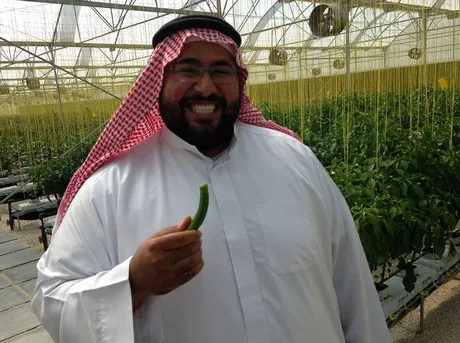
3 March 2014: With a high end operation of 4 hectares, Peninsula Farms was the largest greenhouse grower in the Kingdom of Bahrain, in March. The greenhouse complex was a project by a group of Bahrain businessmen who contributed to the development of the agricultural sector in Bahrain as well as aiding the country to achieve its goal of beomg self sustainable in terms of local fresh produce.
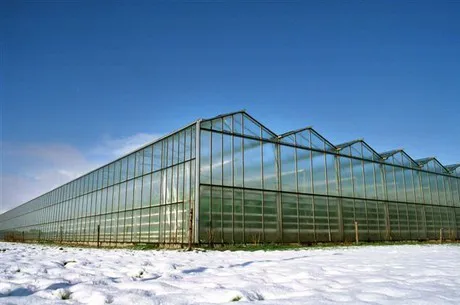
4 March 2014: Due to extreme cold, heating costs rose in Ontario, Canada. Consequently, vegetable growers were hoping for higher prices for their products.

4 March 2014: In March, the passing of Reese Kiikka was sadly announced by Danziger. 'Dan' Flower Farm is deeply saddened to announce the sudden passing of Reese Kiikka, a longterm friend and the company’s North American sales representative.
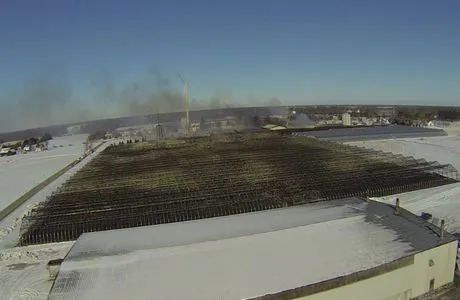
On March 6, A major fire damaged the greenhouse of one of the largest gerbera grower of North America, RosaFlora. About 15 of the 40 acre greenhouse complex was burned. This was not only a shock for the company, but for the entire village named Dunnville. After the fire, RosaFlora quickly started to rebuilt their greenhouses. Only one week after the fire, RosaFlora announced plans to reconstruct 2 hectares of their snapdragon production. During this rebuilding process, the company kept on growing snapdragons in these greenhouses. Therefore, the company was able to supply own grown snapdragons only two weeks after the fire. Besides, the company purchased Peter Bulk greenhouses in Welland, during this rebuilding period.

7 March 2014: In New Zealand, critics were against the introduction of a new biological hothouse pest-control. According to the critics it was a danger to NZ plants and insects. They faired a huge loss of New Zealand native species, or at the very least an irreversible damage to plant and invertebrate animal communities.
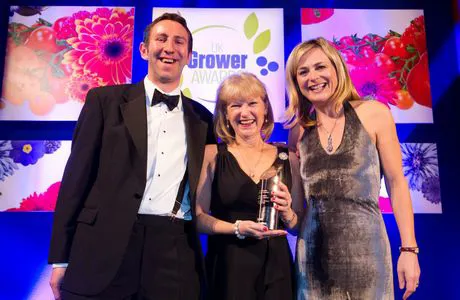
10 March 2014: The British Tomato Growers’ Association (TGA) were awarded the top prize in the marketing category at the recent national ‘Grower of the Year Award’ ceremony held in London. TGA was awarded for their 2013 marketing campaign.
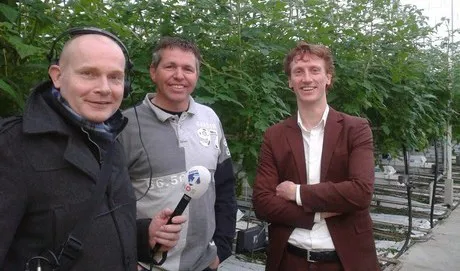
13 March 2014: In March 2014, some Dutch companies, that are active in Ukraine, expressed their worries about the consequences of the commotion in Ukraine for their business. For example, Jack Groenewegen, a tomato grower, and Dirk Aleven, a greenhouse manufacturer feared a financial boycott.
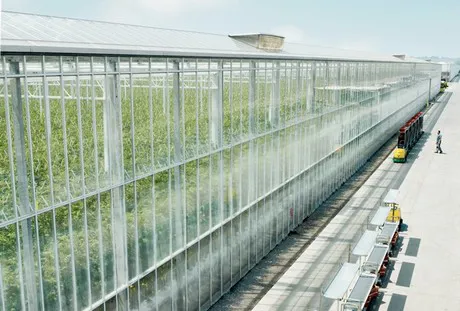
14 March 2014: In March 2014, Houweling's Tomatoes planned a $79 Million investment in an environmentally friendly greenhouse tomato farm in Utha, the United States. This greenhouse would create more than 280 jobs. At the moment, the greenhouse is being built.
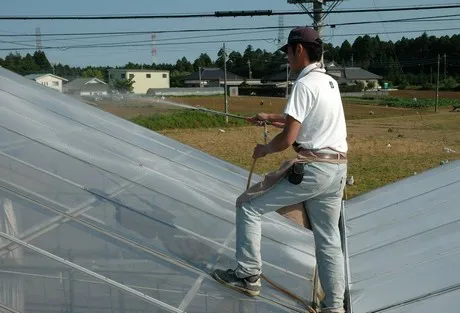
17 March 2014: Over the years the composition of paint has evolved from a simple chalk based product to cool down the greenhouse in the summer months into high end solutions with photo-selective effects: Nowadays there are coatings on the markets that deliver optimum distribution of radiation while maintaining high light transmissions. Hortidaily conducted an interview with a paint supplier, Sudlac.
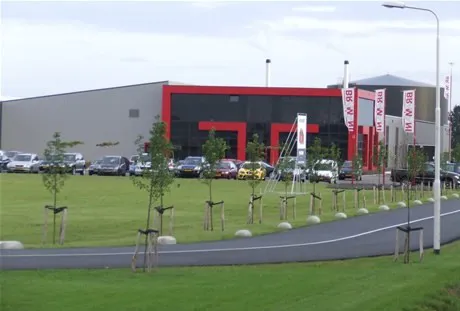
17 March 2014: A large 10 acreage Dutch tomato grower went bankrupt. Grower Bramani in Luttelgeest operated a modern greenhouse and was established in 2008. The bad pricing on the tomato market is named as the most important reason for the bankruptcy. In the past the growers could keep their heads up thanks to the high price of electricity and low prices for natural gas; a perfect situation for cogeneration. Many growers invested in CHP's. However, the tide has turned; now it is high prices for natural gas and poor prices for electricity.
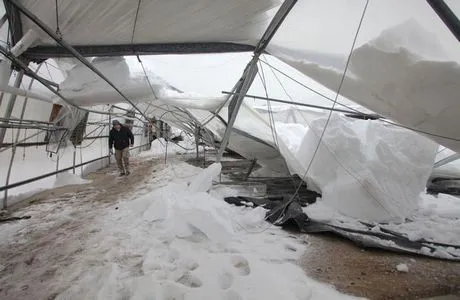
19 March 2014: The almost record-breaking snowfall and subzero temperatures have been wreaking havoc on Michigan greenhouse businesses and those throughout the Midwest who are in the spring production rush. Challenges faced by greenhouse growers include damaged greenhouse structures from heavy snow loads, high heating bills, increase in labour to remove snow, chilling or freezing damage on vegetative cuttings, and disruptions in production shipping and scheduling.
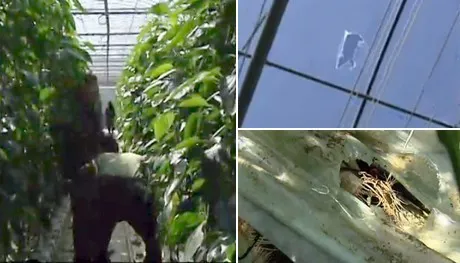
20 March 2014: On March 9, a meteorite crashed into a South Korean greenhouse. A greenhouse grower in South Korea escaped death when a heavy piece of a meteorite crashed into his greenhouse. The meteorite weighing 9 kilos went through the greenhouse roof and caused a small crater inside the greenhouse. Luckily nobody was harmed.
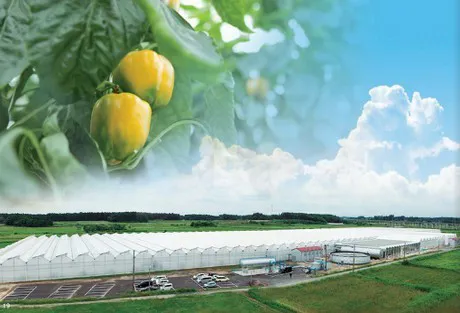
21 March 2014: Toyota Motor Cooperation started up a project to build a greenhouse to grow bell peppers for the Domestic market. The greenhouse is located in Japan. After a successful pilot with the 0.5 hectare greenhouse, another two hectare second stage was constructed followed by another two hectare greenhouse. The greenhouses are equipped with the newest technologies.
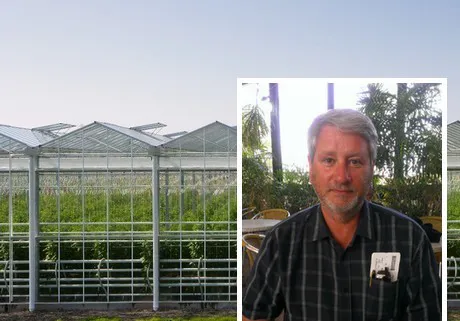
26 March 2014: In the last decade Australian horticulture has seen a big shift from field-grown produce to greenhouse production, with supermarkets indicating they want growers to double the supply of tomatoes in coming years. In order to meet the demand, large and modern greenhouses needed to be built. Graeme Smith, an Australian ex-grower and now the owner of Graeme Smith Consulting (Greenhouse Innovations), was heavily involved in a project just outside of Melbourne to develop a 400 hectare greenhouse precinct.
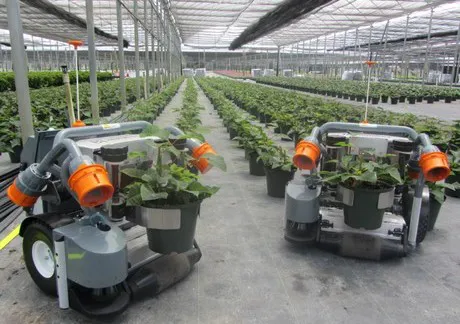
31 March 2014: Harvest Automation introduced a robot to move plant containers. After market research and talking to growers, Harvest Automation found out that there was a big demand for automated plant container handling. "Some tasks can better be done by humans today, but there are also tasks that can be done by a robot more efficiently and moving plant containers was one of them. "
